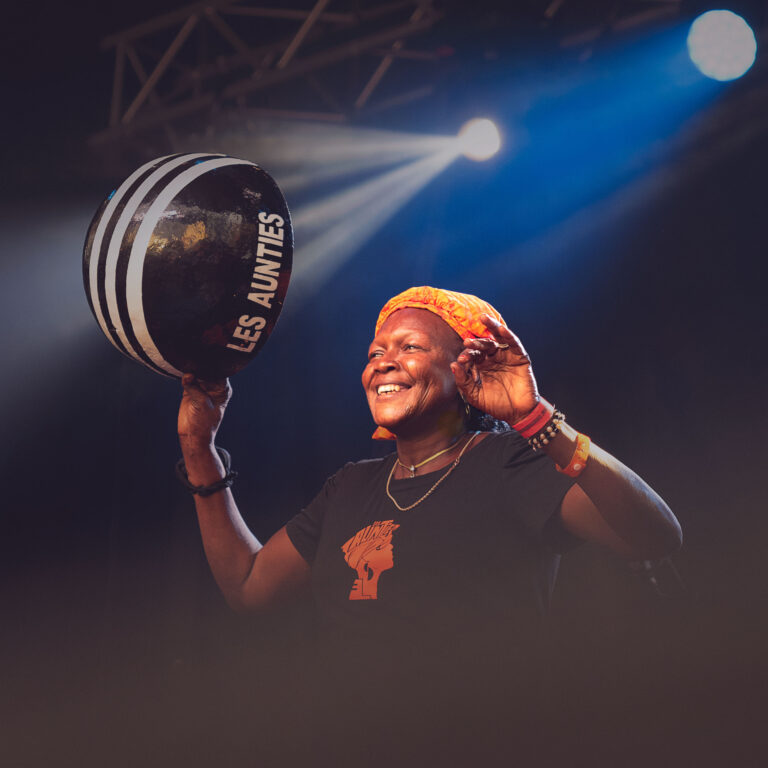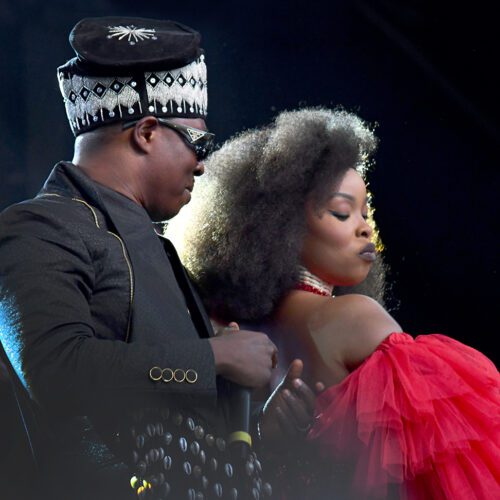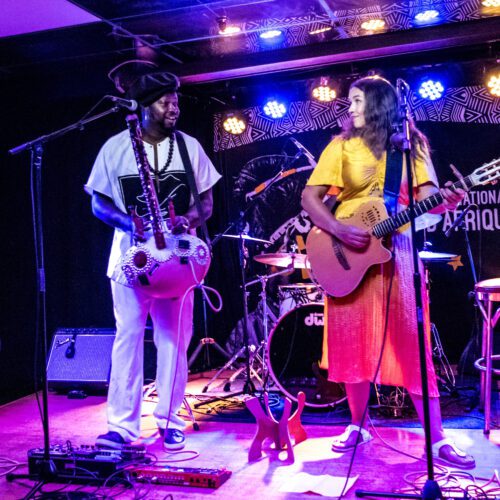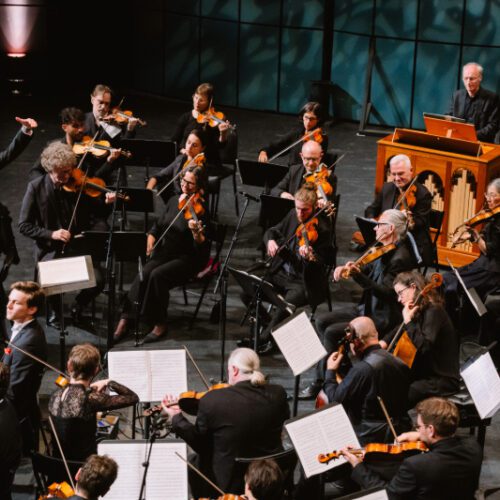Nine women, quite ordinary, in the image of other Chadian women, mothers, all dressed in orange skirts and black tops, sitting in a circle, each with her microphone and calabash.
In fact, they always massage their calabashes before tapping them. And despite heavy rain from the very first minutes of the concert and for a good part of it, the audience remained on hand, with their umbrellas or raincoats, for those who had planned ahead.
Depending on the song, one of them starts singing, while the other eight respond in unison. Sometimes, they walk in circles, with one singing and the others providing backing vocals. At other times, one of them sings, another starts dancing around her, and the others stay behind. In short, we had several configurations on stage, but all of them captivated the audience’s attention, fascinated to see these ladies of a certain age on stage.
Right next to the stage, I could see the great Chadian star Afrotronix, who had come to encourage his compatriots. It was only at the end of the show that we learned that he was behind the group. “It’s a movement that’s just beginning. We grew up seeing our mothers, and it was these women who made us what we are today,” he says, mentioning in passing that his mother is in the audience.
Les Aunties often talk about women and their right to education in several tracks that evening, as well as domestic violence. “Montreal woman, how are you doing ?” asks one, then replacing Montreal, with Kinshasa, Cameroon and Ndjamena. At this point, we hear applause from the crowd, and it soon becomes clear that Montreal’s Chadian community is represented.
At a certain point in the show, they all wear a traditional Chadian dress, over their original skirts, and continue to sing together, seated or standing, with or without calabash, in a circle or in a row. During a song, the title of which I don’t know, the music is quieter and they line up as if going to a mosque for prayer, before taking off their traditional dress and returning to their initial attire. Sometimes, one of them takes center stage, and all the women around her encircle her, addressing her sympathetically and obviously singing for her.
At some point during the concert, each of them takes the floor and addresses the audience in their native language. This is where Afrotronix takes on the role of translator, translating the words into French.
No way!” she says to the applause of the crowd. It’s clear that these women are not afraid of words, and that they speak from experience in their desire to break the silence. From that moment on, it was madness on stage: we witnessed dance performances by several members of the Chadian community who came to perform traditional dance steps, in the center of the circle formed by Les Aunties.
The step they often performed consisted of moving shoulders and chest movements, rather like Ethiopia’s Eskesta. A percussionist also joined in, improvising on one of the tracks, while one of Les Aunties was at the turntables, headphones on and console in front of her. From time to time, Afrotronix came to adjust buttons on DJ Aunty’s console. In fact, the entire Chadian artistic community was on hand to contribute to the success of this original group on Saturday night. Moral of the story: there’s no age limit to following your dreams. If Les Aunties have done it, then anyone can.
























